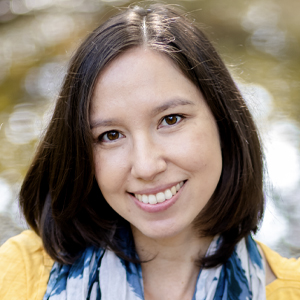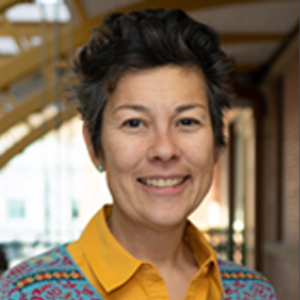Finding connection in identity ambiguity
What does it mean to occupy an in-between space, both personally and professionally?
Our role in educational development often is described as a liminal position, somewhere between a traditional faculty appointment and a staff appointment. The two of us hold doctorates in the biological sciences, and we use our professional training to support instructors in their pedagogical efforts, from course design to classroom management to evaluating instructional effectiveness.
Referred to as “care work,” this job requires emotional labor and is mostly completed by women — specifically, white women. Membership of the Professional and Organizational Development, or POD, Network, our national organization, largely identifies as white (85%) and female (75%). Given these statistics and a racialized society, it can be particularly difficult for educational developers with minoritized identities to navigate daily conversations around educational equity and act as a “key lever for ensuring institutional quality and supporting institutional change,” as Mary Deane Sorcinelli and co-authors wrote in “Creating the Future of Faculty Development.”
For us, in particular, our professional identity ambiguity intersects with our personal identity ambiguity. Both of us individually have struggled to come to terms with our racial identities. As half-Chinese, half-white women who were raised in Westernized communities (Germany, the United States), we never felt comfortable in the usual categories. Are we BIPOC? Asian? Are we allowed to join such affinity groups? Sometimes we pass as white — what are the implications of this? Are we imposters if our upbringings involved little Chinese cultural tradition and language? How do we relate to the lived experiences of other Asians and other people of color? And how does all of this impact our work, particularly in the realm of supporting diversity, equity, inclusion and justice in higher education?
We each had asked ourselves these questions alone. Then we found each other at a conference. The POD Network annual conference, held remotely in November 2021, for the first time incorporated affinity group meetings. We bumped into each other twice in spaces that were designated for Asian American and Pacific Islander folks and were pleasantly surprised at how natural it was to disclose our continued questioning and struggle with racial identity to a total stranger.
Our shared experience led us to establish a connection, thus beginning a mutual mentoring relationship. Though this relationship is nascent, we have discussed everything from our experiences as young children to the ways in which we navigate and even leverage our racial identities when working with faculty. Our miniature affinity group has felt affirming, both personally and professionally. Now we can ask, and begin to answer, some of these questions together.
This connection would not have been forged had there not been affinity groups interwoven in the conference schedule. We appreciated the fluidity of self-selection — after all, Asians are not a monolithic group, and we are examples of that.
We encourage event organizers on national, local or even departmental levels to create space for affinity groups so members of underrepresented identities can seek one another for mutual support, understanding and inspiration.
About ‘Meeting Connections’
Have you made a friendship or connection, forged a collaboration, gleaned insight or had another meaningful experience at a scientific meeting?
To celebrate the return of the American Society of Biochemistry and Molecular Biology’s annual meeting as an in-person event, ASBMB Today held an essay contest based on this question. This is one of the winning entries.
Enjoy reading ASBMB Today?
Become a member to receive the print edition four times a year and the digital edition monthly.
Learn moreGet the latest from ASBMB Today
Enter your email address, and we’ll send you a weekly email with recent articles, interviews and more.
Latest in Opinions
Opinions highlights or most popular articles

Women’s health cannot leave rare diseases behind
A physician living with lymphangioleiomyomatosis and a basic scientist explain why patient-driven, trial-ready research is essential to turning momentum into meaningful progress.

Making my spicy brain work for me
Researcher Reid Blanchett reflects on her journey navigating mental health struggles through graduate school. She found a new path in bioinformatics, proving that science can be flexible, forgiving and full of second chances.

The tortoise wins: How slowing down saved my Ph.D.
Graduate student Amy Bounds reflects on how slowing down in the lab not only improved her relationship with work but also made her a more productive scientist.

How pediatric cataracts shaped my scientific journey
Undergraduate student Grace Jones shares how she transformed her childhood cataract diagnosis into a scientific purpose. She explores how biochemistry can bring a clearer vision to others, and how personal history can shape discovery.

Debugging my code and teaching with ChatGPT
AI tools like ChatGPT have changed the way an assistant professor teaches and does research. But, he asserts that real growth still comes from struggle, and educators must help students use AI wisely — as scaffolds, not shortcuts.

AI in the lab: The power of smarter questions
An assistant professor discusses AI's evolution from a buzzword to a trusted research partner. It helps streamline reviews, troubleshoot code, save time and spark ideas, but its success relies on combining AI with expertise and critical thinking.


